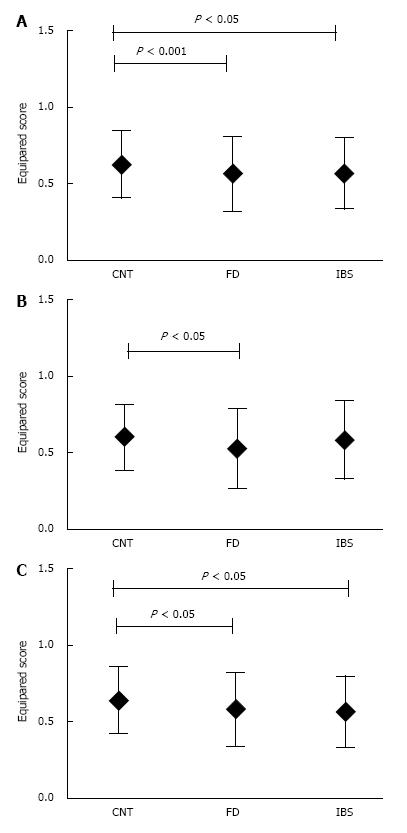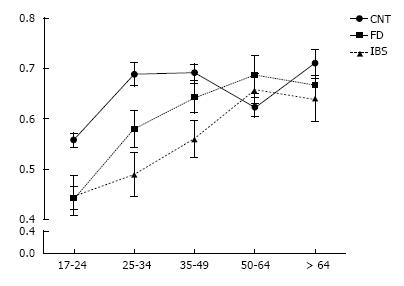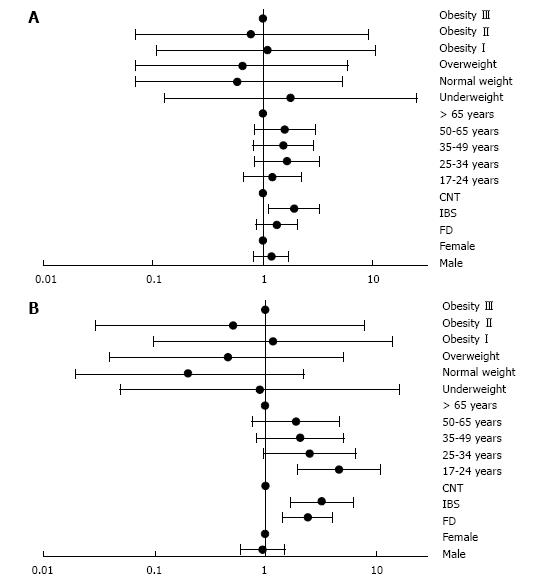Copyright
©The Author(s) 2016.
World J Gastrointest Pharmacol Ther. Nov 6, 2016; 7(4): 564-571
Published online Nov 6, 2016. doi: 10.4292/wjgpt.v7.i4.564
Published online Nov 6, 2016. doi: 10.4292/wjgpt.v7.i4.564
Figure 1 Equalized mean score to mediterranean diet in CNT, functional dyspepsia and irritable bowel syndrome patients.
A: All subjects show a significantly lower adherence score in FD and irritable bowel syndrome (IBS) compared to CNT; B: In the male group only FD exhibited significantly lower adherence scores compared to CNT; C: In females a significant difference for FD and IBS compared to CNT was confirmed.
Figure 2 Distribution of equalized mean adherence score to mediterranean diet in CNT, functional dyspepsia and irritable bowel syndrome stratifying for age clusters.
In the 17-24 years and 25-34 years groups both FD and IBS exhibited significantly lower mean adherence score compared to CNT. In the 35-49 years group only IBS patients exhibited a significantly lower mean score compared to CNT. No differences were observed in other age categories (data ± SEM are shown). FD: Functional dyspepsia; IBS: Irritable bowel syndrome.
Figure 3 Multivariate analysis shows a pairwise comparison of the phenotypes (body mass index category, age category, clinical pattern and sex) as follows: A: Comparison between high vs intermediate adherence to MD: only IBS was significantly associated with Intermediate adherence to MD; B: Comparison between high vs low adherence to MD: both IBS and FD as well as the youngest age category were significantly associated with low adherence to MD.
The oldest group, controls, individuals presenting with third grade obesity and females are used as reference category in the multinomial regression model. MD: Mediterranean diet; IBS: Irritable bowel syndrome; FD: Functional dyspepsia.
- Citation: Zito FP, Polese B, Vozzella L, Gala A, Genovese D, Verlezza V, Medugno F, Santini A, Barrea L, Cargiolli M, Andreozzi P, Sarnelli G, Cuomo R. Good adherence to mediterranean diet can prevent gastrointestinal symptoms: A survey from Southern Italy. World J Gastrointest Pharmacol Ther 2016; 7(4): 564-571
- URL: https://www.wjgnet.com/2150-5349/full/v7/i4/564.htm
- DOI: https://dx.doi.org/10.4292/wjgpt.v7.i4.564











